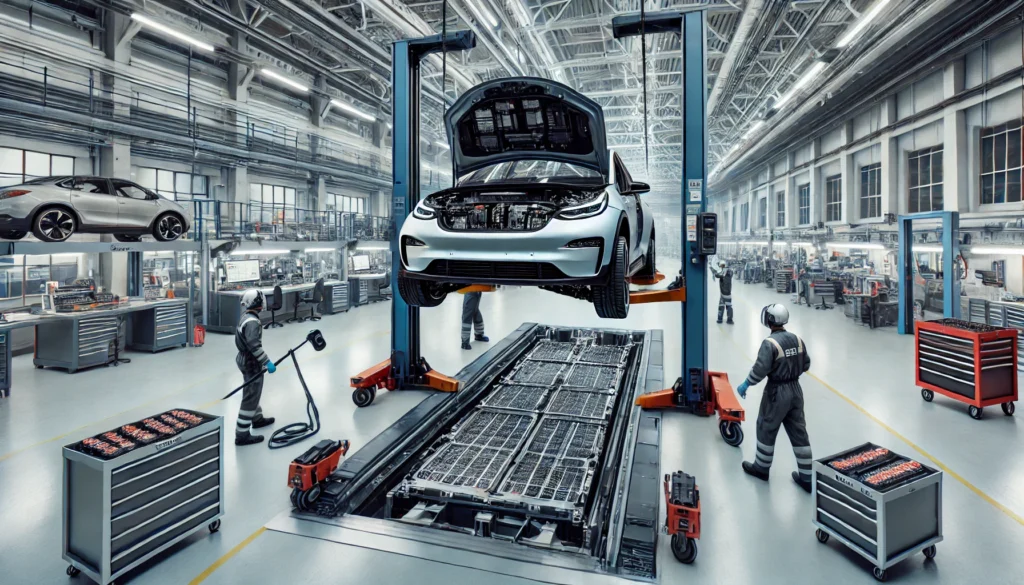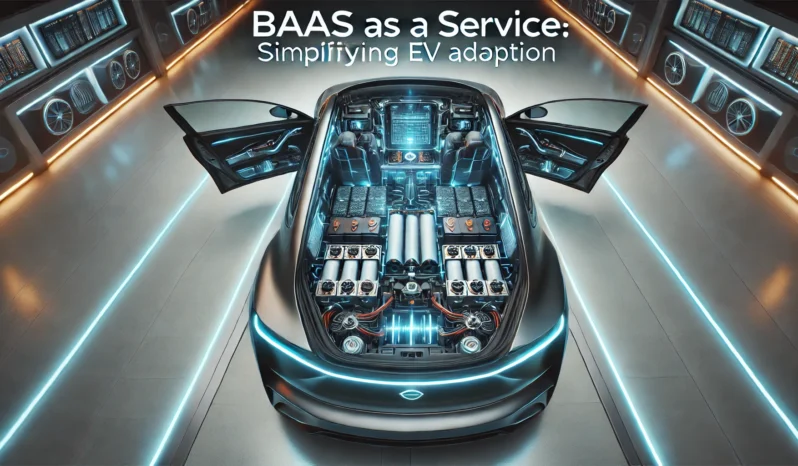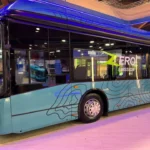Battery as a Service (BaaS) is an emerging model that has the potential to significantly enhance EV adoption in India by addressing key consumer concerns such as the high upfront cost of EVs and battery-related anxieties. This innovative solution allows EV owners to lease or subscribe to batteries separately from the vehicle itself. This article explores how BaaS can reshape India’s EV landscape, making electric mobility more accessible, convenient, and affordable.
What is Battery as a Service?
In the BaaS model, the battery is leased rather than purchased with the vehicle. EV users can swap their discharged batteries at designated swapping stations for fully charged ones. This eliminates long charging times and the need to invest in expensive battery replacement over the vehicle’s lifetime. Instead, drivers pay a subscription fee or per-swap charge based on their usage.
This model is already gaining traction in India, particularly in the commercial EV segment, including e-rickshaws and electric scooters with high daily mileage requirements. Companies like Neuron Energy and Pointo are leading the charge by providing affordable battery leasing solutions.

Key Benefits for Indian Consumers
Lower Upfront Costs
One of the major barriers to EV adoption in India is the high cost of electric vehicles, largely due to the price of the battery, which constitutes about 40% of the total cost. With BaaS, consumers can purchase vehicles at a much lower price by excluding the battery, as seen with MG Motor India’s BaaS program, which reduces the cost of vehicles like the MG Comet.
Quick and Convenient Battery Swapping
Unlike traditional charging, which can take several hours, battery swapping enables EV users to replace a depleted battery within minutes. This is particularly useful for commercial operators like e-rickshaw drivers, who can cover more distance daily without waiting to recharge.
Improved Battery Management
BaaS shifts the responsibility of battery maintenance, upgrades, and recycling to service providers, alleviating consumer concerns about battery degradation and replacement costs. Providers like Vidyut are already collaborating with MG Motors to provide robust BaaS infrastructure, focusing on reducing battery-related risks and ensuring reliability.
Scalability for Various EV Segments
While the current focus of BaaS is on two- and three-wheelers, such as e-rickshaws, the model is expected to extend to passenger cars and buses as the battery-swapping ecosystem develops. With government support, especially through favorable policies, BaaS could become integral to India’s growing electric mobility sector.
Challenges and Solutions
While BaaS presents a promising future, several challenges need to be addressed:
Infrastructure
Setting up a widespread network of battery-swapping stations across India is capital-intensive and logistically complex. However, partnerships between BaaS providers and existing fuel stations (e.g., Sun Mobility partnering with Jio-bp) are helping to overcome this hurdle.
Interoperability
The lack of standardization across battery types and connectors remains a concern. The Indian government is working on policies to ensure interoperability, allowing batteries from different manufacturers to be swapped seamlessly, thereby improving accessibility.
Consumer Awareness
Indian consumers are still familiarizing themselves with EV technology, and many are unaware of the benefits that BaaS can offer. Initiatives to educate consumers and build trust will be key to widespread adoption.
Government Support and Policies
The Indian government has recognized the role BaaS can play in accelerating EV adoption. The Battery Swapping Policy, introduced in 2022, promotes the BaaS model and allows EV buyers to purchase vehicles without batteries, thereby reducing the upfront costs and encouraging more consumers to shift to electric mobility.
ELCTRIK Speaks
Battery as a Service represents a significant step toward making EVs more affordable, convenient, and accessible in India. With support from the government and growing partnerships between EV manufacturers and BaaS providers, this model could transform the Indian electric vehicle market, reducing costs, increasing driving range, and promoting sustainability. For Indian consumers, especially those in commercial sectors, BaaS offers a viable solution to the challenges posed by conventional battery ownership, pushing the country closer to its electric mobility goals.






